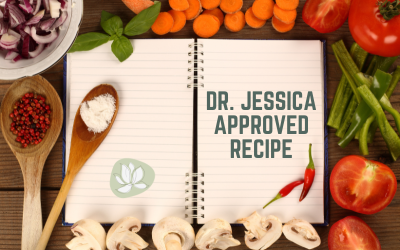Elderberries have gained popularity as a natural remedy for cold and flu symptoms thanks to their antioxidant-rich composition. However, before you rush to purchase elderberry syrup products, it’s crucial to understand the potential drawbacks. This blog post will delve into elderberry issues, such as mold contamination, lack of organic certification, and possibly roundup or other chemical contamination. Ultimately, we’ll conclude with safer alternatives for keeping you healthy.
The Mold Problem
One significant concern with elderberries is their susceptibility to mold growth. When they reach processors or manufacturers, many elderberries are already contaminated. Mold can produce toxins harmful to human health, making it imperative to avoid consuming mold-infested elderberry products. While some manufacturers claim to address this issue through rigorous testing, it’s easier to guarantee the absence of mold with proper certification.
The Organic Conundrum
Another drawback of elderberries is the lack of organic certification for most available products. Without this certification, consumers can’t be confident whether the berries have been exposed to pesticides, herbicides, or other chemicals during cultivation. Opting for organic elderberries ensures a higher quality standard and reduces potential exposure to harmful substances.
Processing
Most commercially made products have added ingredients that are simply unnecessary. These are added to “preserve freshness,” AKA sitting on the shelves for years. Another problem is the gummies with a tremendous amount of sugar added to them, destroying the immune system.
The Safer Alternatives
Make your own!
Making elderberry syrup at home is a simple and cost-effective way to ensure you use high-quality organic ingredients and avoid potential contaminants. Here’s a step-by-step guide on how to make elderberry syrup:
Ingredients:
- 1 cup dried organic elderberries
- 4 cups water
- 1 cup honey (raw and organic)
- Optional: Additional herbs or spices like cinnamon or ginger for added flavor and immune-boosting properties. You could even use essential oils for the flavors, cinnamon bark vitality or ginger vitality
Instructions:
- Rinse the elderberries: Place the dried elderberries in a fine-mesh strainer and rinse them thoroughly under cold water to remove any dust or debris.
- Simmer the elderberries: In a medium-sized saucepan, combine the rinsed elderberries and water. Bring the mixture to a boil, then reduce the heat to a simmer. Allow the berries to simmer for 30-40 minutes until the liquid is reduced by about half.
- Mash the berries: Using a potato masher or the back of a spoon, gently mash the softened elderberries to release more of their juices. Continue simmering for an additional 10 minutes.
- Strain the mixture: Place a fine-mesh strainer or cheesecloth over a large bowl or pitcher. Carefully pour the elderberry mixture through the strainer, pressing down with a spoon to extract as much liquid as possible. Discard the solids.
- Add honey: Allow the strained elderberry liquid to cool slightly, and then stir in the honey. If using additional herbs or spices, you can add them at this stage as well. Mix well until the honey is fully dissolved.
- Bottle and store: Pour the elderberry syrup into sterilized glass bottles or jars with airtight lids. Store the syrup in the refrigerator, which will keep for several weeks. If you’d like to extend the shelf life, you can also freeze the syrup in ice cube trays and thaw it as needed.
Usage: Take 1-2 tablespoons of elderberry syrup daily as a preventive measure during cold and flu season. If you’re already experiencing cold or flu symptoms, increase the dosage to 1-2 tablespoons every 2-3 hours until symptoms improve.
Enjoy the homemade elderberry syrup, and stay healthy!
While elderberries have gained attention for their potential health benefits, it’s essential to consider the issues surrounding their consumption. Mold contamination, lack of organic certification, and possibly roundup contamination make commercial elderberry products a questionable choice. Prioritizing your health with reliable and organic options will help you confidently navigate cold and flu seasons.
Book a Phone Consult today for more information and resources to effectively combat cold and flu symptoms!




Recent Comments